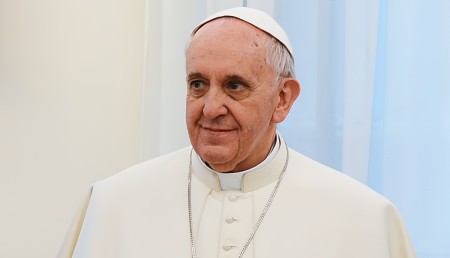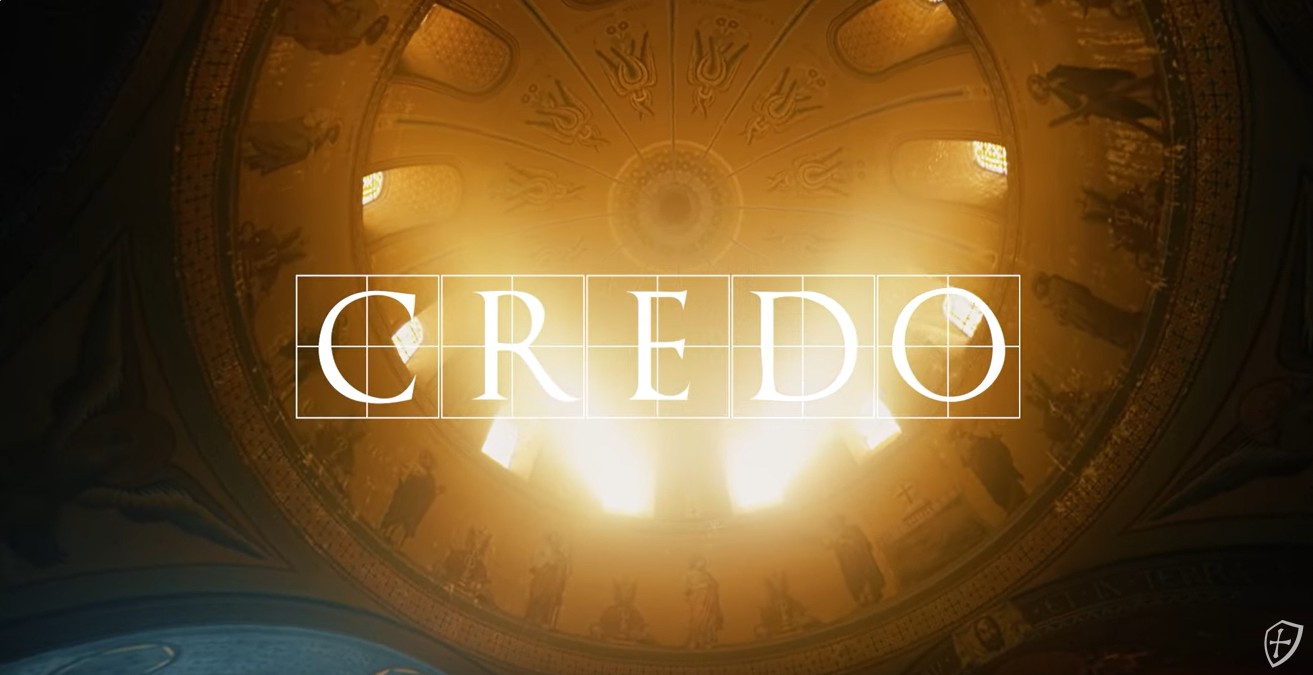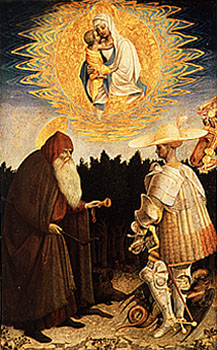 Dear readers, Catholic Online was de-platformed by Shopify for our pro-life beliefs. They shut down our Catholic Online, Catholic Online School, Prayer Candles, and Catholic Online Learning Resources—essential faith tools serving over 1.4 million students and millions of families worldwide. Our founders, now in their 70's, just gave their entire life savings to protect this mission. But fewer than 2% of readers donate. If everyone gave just $5, the cost of a coffee, we could rebuild stronger and keep Catholic education free for all. Stand with us in faith. Thank you. Help Now >
Dear readers, Catholic Online was de-platformed by Shopify for our pro-life beliefs. They shut down our Catholic Online, Catholic Online School, Prayer Candles, and Catholic Online Learning Resources—essential faith tools serving over 1.4 million students and millions of families worldwide. Our founders, now in their 70's, just gave their entire life savings to protect this mission. But fewer than 2% of readers donate. If everyone gave just $5, the cost of a coffee, we could rebuild stronger and keep Catholic education free for all. Stand with us in faith. Thank you. Help Now >
Pope's Preacher on 'The Importance of the House of God'
FREE Catholic Classes
Father Cantalamessa expounds on the deeper meaning of the Feast of the Dedication of the Lateran Basilica in Rome.
Highlights
Zenit News Agency (www.zenit.org)
11/8/2008 (1 decade ago)
Published in Europe
ROME (Zenit) - This year, in the place of the 32nd Sunday in Ordinary Time, we celebrate the feast of the Dedication of Lateran Basilica in Rome, the cathedral of Rome, originally dedicated to the Savior, but then to St. John the Baptist.
What does the dedication and existence of a church, understood as a place of worship, represent for the Christian liturgy and Christian spirituality? We must begin with the words of John's Gospel: "The hour is coming, and is now here, when the true worshippers will worship the Father in spirit and truth, for the Father seeks such worshippers."
Jesus teaches that God's temple is primarily the human heart, which has welcomed the Word of God. Speaking of himself and of the Father, Jesus says: "We will come to him and make our abode in him" (John 14:23), and Paul writes one of his communities: "Do you not know that you are God's temple?" (1 Corinthians 3:16). The believer, then, is the new temple of God. But the place of God's presence and Christ's is also there "where two or more are gathered in my name" (Matthew 18:20).
The Second Vatican Council calls the Christian family a "domestic Church" ("Lumen Gentium," 11), that is, a little temple of God, precisely because, thanks to the sacrament of matrimony, it is, par excellence, the place where "two or more" are gathered in my name.
So, by what right do we Christians give such importance to church buildings if each one of us can worship God in spirit and truth in our own heart, or in his own house? Why this obligation to go to church every Sunday? The answer is that Jesus Christ does not save us separately from each other; he has come to form a people, a community of persons, in communion with him and among themselves.
What a house is for a family, a church is for the family of God. There is no family without a house. One of the films of Italian neo-realism that I still remember is "Il Tetto" ("The Roof"), written by Cesare Zavattini and directed by Vittorio De Sica. In postwar Rome a poor young man and woman fall in love and get married but do not have a home. Under Italian law at the time, once a house had a roof, its occupants could not be evicted. The couple hurriedly try to put a roof on a ramshackle dwelling and when they succeed, they are overjoyed and embrace, knowing that they have a home, a place of intimacy; they are a family.
I have seen this story repeat itself in many places in cities, towns and villages where there was no church and the people needed to build one. The solidarity and enthusiasm, the joy of working together with the priest to give the community a place of worship and a place to meet -- they are all stories that would merit a film such as De Sica's.
We must also consider a sad phenomenon: the massive drop in church attendance and participation in Sunday Mass. The statistics on religious practice should make one weep. I do not say that those who do not go to church no longer believe; It is rather that they have replaced the religion instituted by Christ with a "do it yourself" religion, what in America they call "pick and choose," like you do at the supermarket. Everyone makes up his own idea of God, of prayer, and he is content with it.
Thus it is forgotten that God revealed himself in Christ, that Christ preached a Gospel, that he founded an "ekklesia," that is, an assembly of those called, he instituted sacraments as signs and conveyors of his presence and salvation. Ignoring this in order to cultivate your own image of God is to advocate total religious subjectivism. We take ourselves as the only standard: God is reduced -- as the German philosopher Ludwig Feuerbach said -- to a projection of our own needs and desires; it is no longer God who creates man in his image, but man who creates a god in his image. But it is not a god who saves!
Of course, a religion that is entirely made up of external practices has no point; we see Jesus fighting against such a religion everywhere in the Gospel. But there is no contradiction between a religion of signs and sacraments and one that is intimate, personal; there is no contradiction between ritual and spirit. The great religious geniuses (Augustine, Pascal, Kierkegaard, our own Alessandro Manzoni) were men of a profound and personal interiority who were at the same time members of a community, went to church, they "practiced."
In the "Confessions" (VIII, 2) St. Augustine recounts the great Roman philosopher and rhetorician Victorinus' conversion to Christianity from paganism. Now convinced of the truth of Christianity he told the priest Simplicianus: "You know I am already Christian." Simplicianus answered him: "I will not believe you until I see you in the church of Christ." Victorinus replied: "Is it the walls that make a Christian?" The skirmish continued between the two. But one day Victorinus read in the Gospel these words of Christ: "Whoever disowns me in this generation, I will disown before my Father." He understood that it was human respect, fear of what his academic colleagues would say, that kept him from going to church. He went to Simplicianus and said to him: "Let's go to church, I want to become a Christian." I think that this story has something to say to people of culture today too.
[Translation by Joseph G. Trabbic]
* * *
Father Raniero Cantalamessa is the Pontifical Household preacher. The readings for this Sunday are Ezekiel 47:1-2, 8-9, 12; 1 Corinthians 3:9c-11, 16-17; John 2:13-2.
Join the Movement
When you sign up below, you don't just join an email list - you're joining an entire movement for Free world class Catholic education.

-

-
Mysteries of the Rosary
-
St. Faustina Kowalska
-
Litany of the Blessed Virgin Mary
-
Saint of the Day for Wednesday, Oct 4th, 2023
-
Popular Saints
-
St. Francis of Assisi
-
Bible
-
Female / Women Saints
-
7 Morning Prayers you need to get your day started with God
-
Litany of the Blessed Virgin Mary
Pope Francis Suffers Fall: A Look at Papal Health and Succession
-

The Erosion of Civility in Congressional Hearings: A Call for Professional Decorum
-

Bishop Strickland and Others Defend Apostolic Tradition in New Documentary on the Church's Enduring ...
-
At Least 25 Dead as Wildfires Continue to Rage Across Los Angeles, Arson Investigations Underway
-
Australian Woman Charged with Torture After Exploiting Child for Donations
Daily Catholic
 Daily Readings for Friday, January 17, 2025
Daily Readings for Friday, January 17, 2025 St. Anthony the Abbot: Saint of the Day for Friday, January 17, 2025
St. Anthony the Abbot: Saint of the Day for Friday, January 17, 2025 Prayer for a Blessing on the New Year: Prayer of the Day for Tuesday, December 31, 2024
Prayer for a Blessing on the New Year: Prayer of the Day for Tuesday, December 31, 2024- Daily Readings for Thursday, January 16, 2025
- St. Fursey: Saint of the Day for Thursday, January 16, 2025
- St. Theresa of the Child Jesus: Prayer of the Day for Monday, December 30, 2024
![]()
Copyright 2024 Catholic Online. All materials contained on this site, whether written, audible or visual are the exclusive property of Catholic Online and are protected under U.S. and International copyright laws, © Copyright 2024 Catholic Online. Any unauthorized use, without prior written consent of Catholic Online is strictly forbidden and prohibited.
Catholic Online is a Project of Your Catholic Voice Foundation, a Not-for-Profit Corporation. Your Catholic Voice Foundation has been granted a recognition of tax exemption under Section 501(c)(3) of the Internal Revenue Code. Federal Tax Identification Number: 81-0596847. Your gift is tax-deductible as allowed by law.







 Daily Readings for Friday, January 17, 2025
Daily Readings for Friday, January 17, 2025 St. Anthony the Abbot: Saint of the Day for Friday, January 17, 2025
St. Anthony the Abbot: Saint of the Day for Friday, January 17, 2025 Prayer for a Blessing on the New Year: Prayer of the Day for Tuesday, December 31, 2024
Prayer for a Blessing on the New Year: Prayer of the Day for Tuesday, December 31, 2024

